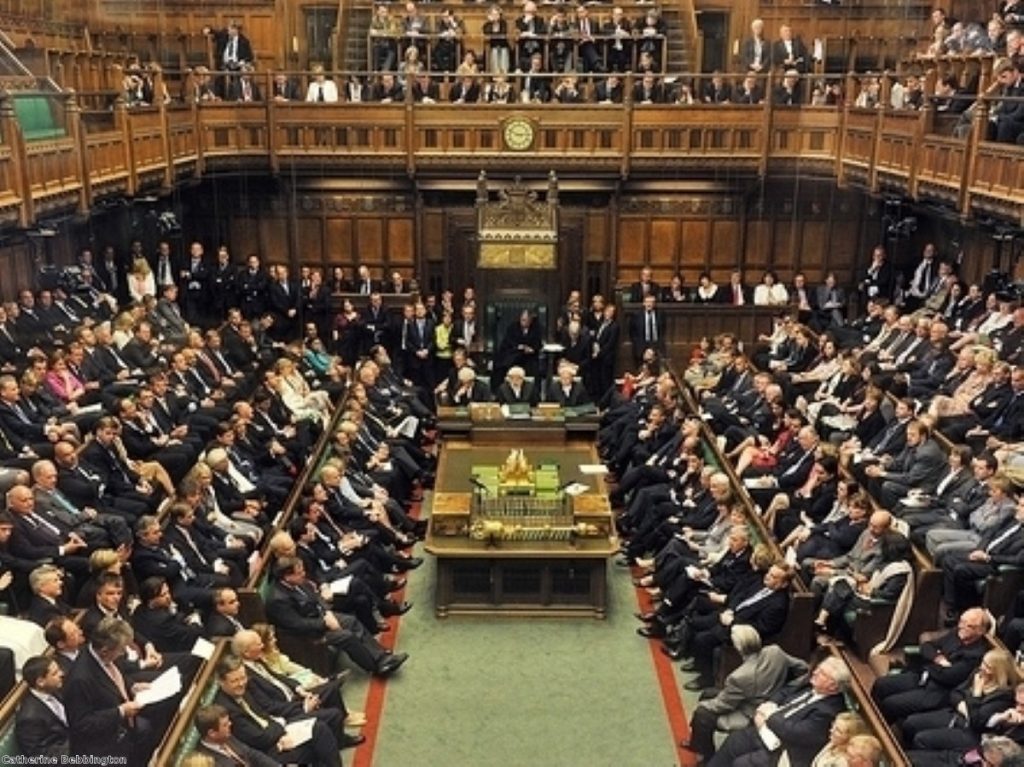Spending review sketch: Shock in the Commons?
In a monstrous triumph of expectations management, George Osborne somehow managed to make the harshest spending cuts in three decades seem not that bad.
The silence in the Commons told a story of itself. Initially the chancellor’s historic statement was going according to schedule, with news of 33% cuts in the Treasury department. When he told MPs early on that councils would suffer 7.1% cuts for four years there were intakes of breath and whistles – the sort of genuine shock we would have expected. This should have been much, much worse than the emergency Budget, when the atmosphere in the chamber was one of desperate queasiness.
That mood simply wasn’t present this afternoon. After months of stories about impending doom Britain’s governing politicians have succeeded in persuading us that cuts of just six per cent to the Ministry of Justice and the Home Office aren’t so bad, after all.


Instead of catcalls, shaking heads, hands in faces, Labour MPs had very little to despair of. Osborne ploughed on, coughing plaintively between sentences for the second half of his 61-minute statement, through welfare, capital spending, department by department. But there were no devastating announcements, nothing as appalling as the build-up had taught us to fear.
Instead ripples of confused, awkward conversation rustled around the Commons as it became clear that Osborne had finished this or that section without actually revealing anything devastating. Nervy government backbenchers kept quiet, hoping to get through to the end without any major bombshells being dropped. Labour, not having anything specific to shout at, were forced to keep quiet.
This was definitely not what we were expecting. There was no wailing, no misery. Instead the chancellor kept talking about investment, incredibly. Never before has a 0.1% increase in real terms, seen in the health budget, for example, attracted more attention as part of the ‘good news’ section. At one stage, as Osborne worked his way through a long list of transport infrastructure investments which will go ahead, proceedings even threatened to turn into a cheer-a-thon.
This was the exception which proved the rule. A few Labour MPs tried their best, their lone voices crying out about “the poorest!” or “waste!” or “jobs!” – but there was no sense of awed horror. Instead, perhaps deflated by Ed Miliband’s limp performance in prime minister’s questions, the opposition remained far quieter than you might have expected.
Osborne had an impressive ending up his sleeve. He revealed the Labour party’s submission to the spending review process had called for overall departmental budget cuts of 20%. In the end, he revealed fantastically, there will only be cuts of 19%. “I thank them for their support and input and I look forward to their votes,” he said smugly.
This was the coup de grace, the killer blow, what one of his predecessors might have called a clunking fist. The coalition yelled and yelled. The Labour benches looked more miserable than they have since the general election. The frontbench were haggard. They had no reply.
Or had they? After Osborne had finally wrapped up his one hour and one minute of history, shadow chancellor Alan Johnson, the new generation personified, rose to his feet. “We’ve seen people cheering the deepest cuts to public spending in living memory!” he said. But it didn’t feel as if this was the case any more.
Johnson knew who to blame – those “deficit deceivers” on the government benches. He gave the predictable warnings about today’s “reckless gamble”. But Labour looked stumped again after he told the Tories that “spending does have to be reduced”. They shouted back: “How?” There was no answer, of course. The government backbenches looked delighted. This was passing off rather well. Perhaps sweeping spending cuts aren’t so bad, after all.
Or, perhaps, here’s an alternative theory. Inside the Commons chamber Osborne had spun a web of reassurance, far removed from the realities now to be implemented. The public are going to notice a difference when the cuts come in. Then, we can be sure, there will be a reckoning. It didn’t feel like MPs appreciated that in parliament today.

